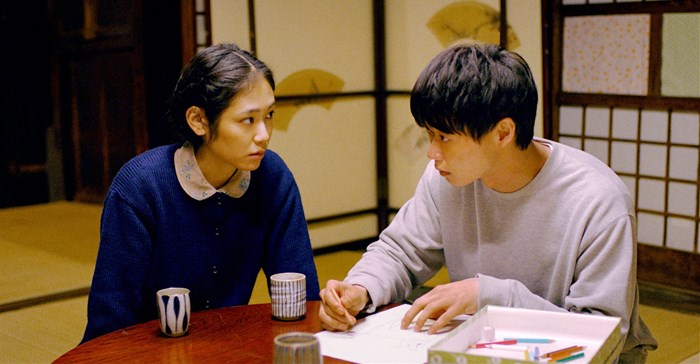
Top stories






More news

ESG & Sustainability
South Africa’s carbon tax should stay: climate scientists explain why
















“It was inspiring to be back in cinema but also to see our online audiences tuning in. It shows us that there is still huge enthusiasm from our South African audiences for the festival, both audiences who have been attending for years and new audiences. It encourages us to continue to develop and look forward to Diff2023,” says the director of the CCA, Ismail Mahomed.
At the awards ceremony, the festival accolades Best Director went to Agam Darshi from Canada for her film Donkeyhead, in which she plays the lead role and wrote the film. The jury said, “One of the most superbly directed films seen in ages, brilliant directing, acting and choices.”
Best Feature Film went to director Ivan Herrera for his film Bantù Mama from the Dominican Republic. Bantù Mama also bagged awards for Best Cinematography and lead actress Clarisse Albrecht, who is also the writer and producer of the film, for Best Performer. “Albrecht gave us a strong lead performance, very character-driven,” the jury said.
The Best African Feature Film award went unanimously to Kenyan director Robin Odongo for his film Bangarang.
The Best South African Feature Film award went to the time-piece 1960, directed by Michael Mutombo and King Shaft. The jury said that they chose the film because “1960 is a powerful historical re-imagination that lays bare some of the chasms of trauma in our history and the effect that this has generationally. We come from a legacy of a lot of pain and a lot of secrets. The film offers a sensitive portrait of a powerful woman with full agency and highlights a narrative sensitive to gendered erasure. The film also does a beautiful job of portraying the historical period, offering a crips window to the past.”
The festival's management also wants to highlight two films not part of the competition selection: Valley of a Thousand Hills and You’re My Favourite Place. “The films touch on important issues relevant to our society today, and Diff would like to acknowledge the filmmakers for translating them into beautifully directed films. South Africa can be proud to produce films like these,” says Mahomed.
Best Documentary was awarded to directors Laura Faerman and Marina Weis for the Brazilian documentary Wind Blows The Border. The jury mentioned they felt like a ‘fly on the wall’ when watching the film.
The Best South African Documentary accolade went to Girl, Taken, directed by Francois Verster and Simon Wood. The jury said, “It could have been sensationalist, but it wasn't. It had all these twists and turns that, in the end, it was like a real human story about family. Many complexities and different layers were brought out what was interesting.”
The documentary No U-Turn by Ike Nnabue from Nigeria took this year’s artistic bravery award for being very honest and touching. “The director took a risk for both himself and the participants,” the jury said.
Special mentions in the Documentary category went to Music Is My Life – The Joseph Shabalala Story for bringing such a powerful story to life and to Batata for being incredibly touching.
This year's festival saw the inaugural edition of the Isiphethu Student Film Festival, and with that also the first awards for student films.
The Best South African student film was won by Where is Mr Adams?, directed by Afda alumni Cameron Murray who created the film as part of his honours. “Comedy is a very risky genre for a student film. At the same time, the film deals with deep and serious themes around self-worth, working together and how things can fall apart when one thing is not in place, which is perfectly combined,” said the jury.
The Best International Student Film went to Mona & Parviz, directed by Kevin Bielle from Germany, which the jury called ‘the perfect short film’.
Special mentions in the student category went to Hourglass House for being a beautiful film that is not easily forgotten and A Woman of No Importance for not just being another migrant story.
The shorts programme presented a robust selection of 72 short films, which were very diverse, being a mix of experimental films, advocacy films and fiction films.
The Best South African Short Film was awarded to Prayers for Sweet Waters, directed by Elijah Ndoumbe, for the great sensibility with which the story was told.
The Best Africa Short Film went to the all-around favourite of the jury, Sixteen Rounds, by director Loukman Ali from Uganda. “It is inspiring that on the continent, we’re producing films on this level.” said the jury.
The Best Short Film went to Miette, a Canadian short film by directors Maude Bouchard and Camille Trudel, for the way it captures intimacy.
Special mentions in the shorts category went to Dream Writer for making us dream beyond our borders, Employee of the Month for making us think about the protest in Nigeria differently, and Little Sky for bringing such a relevant story.
Synopses and details of the films are available here.